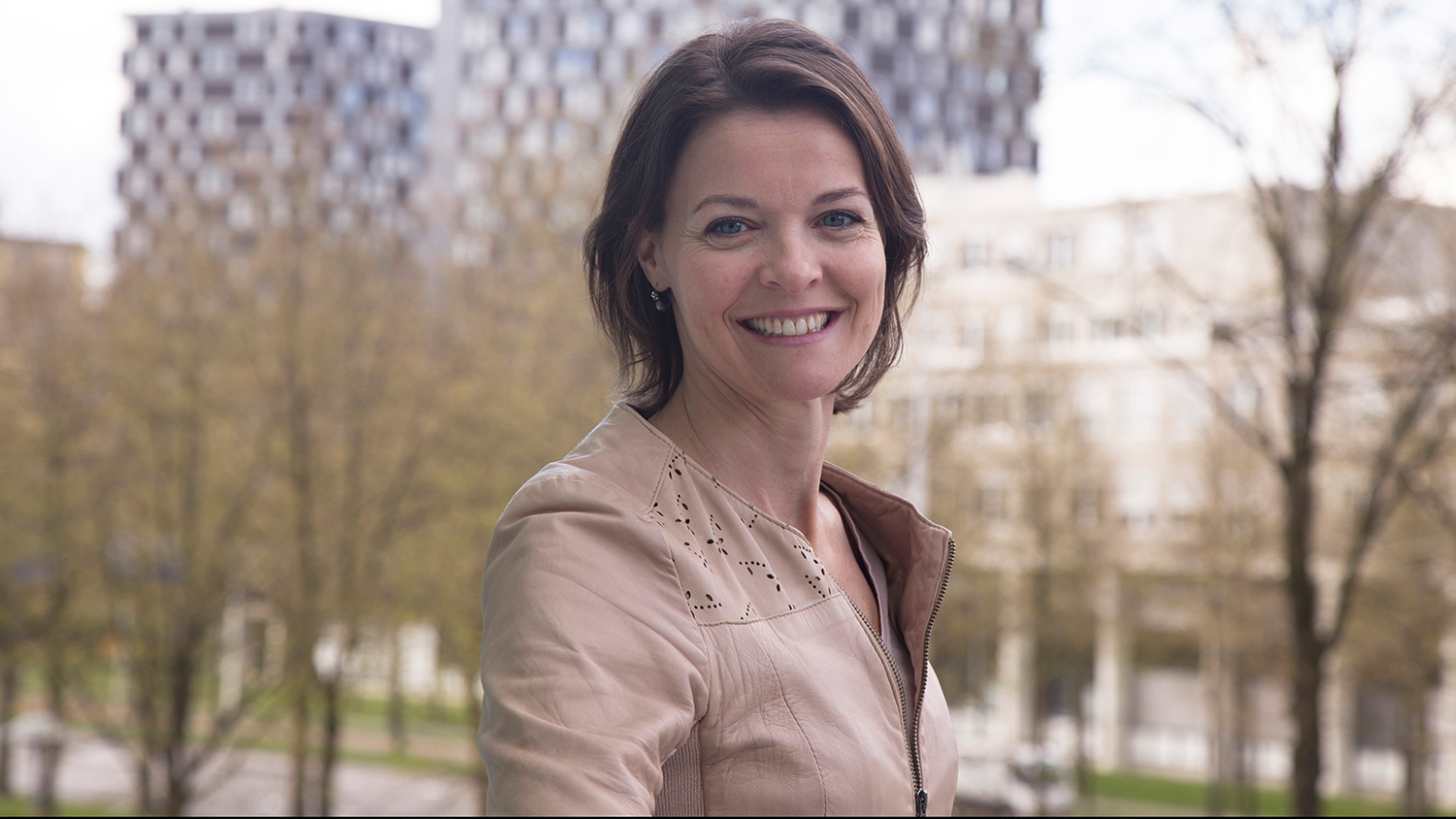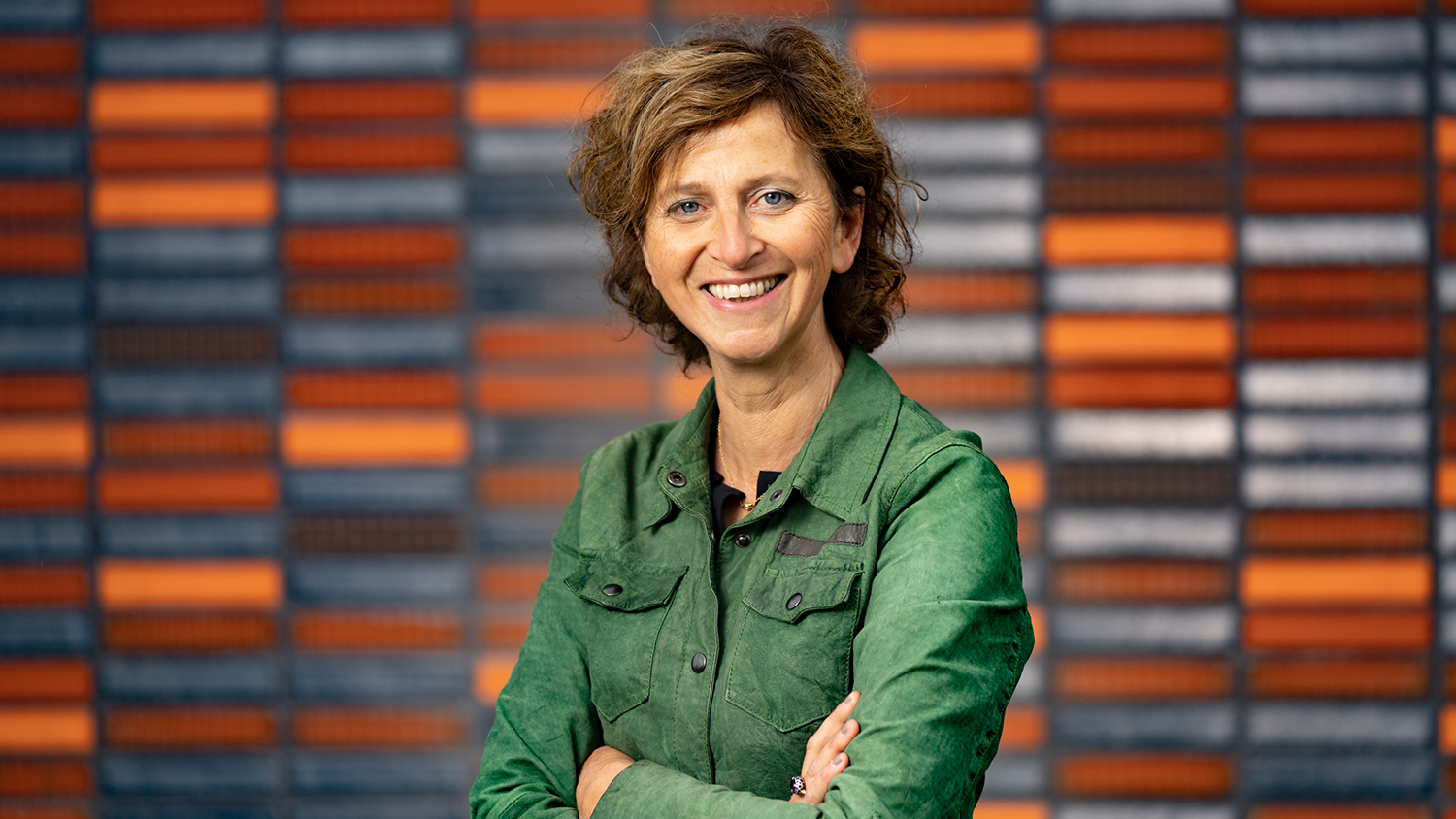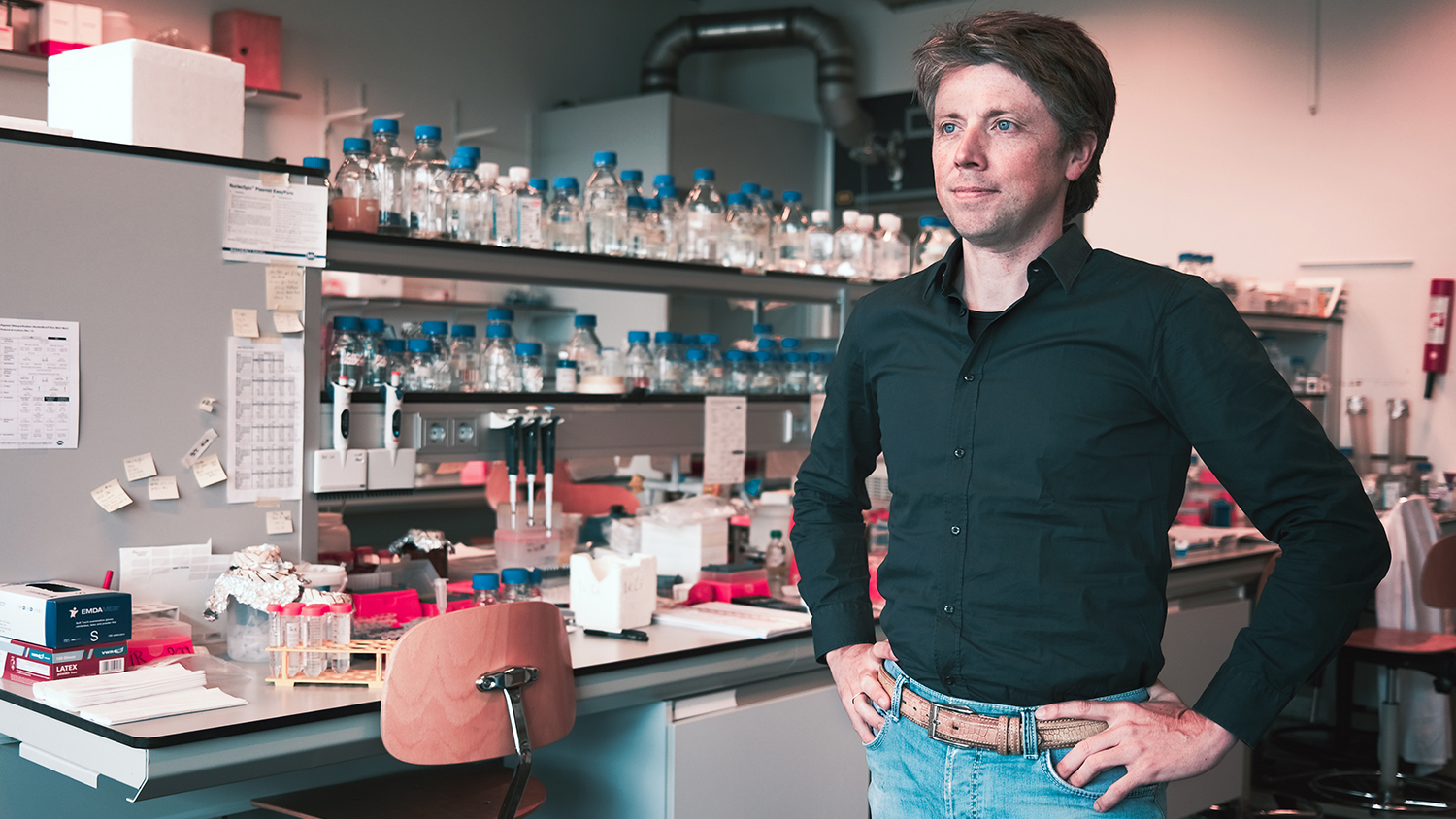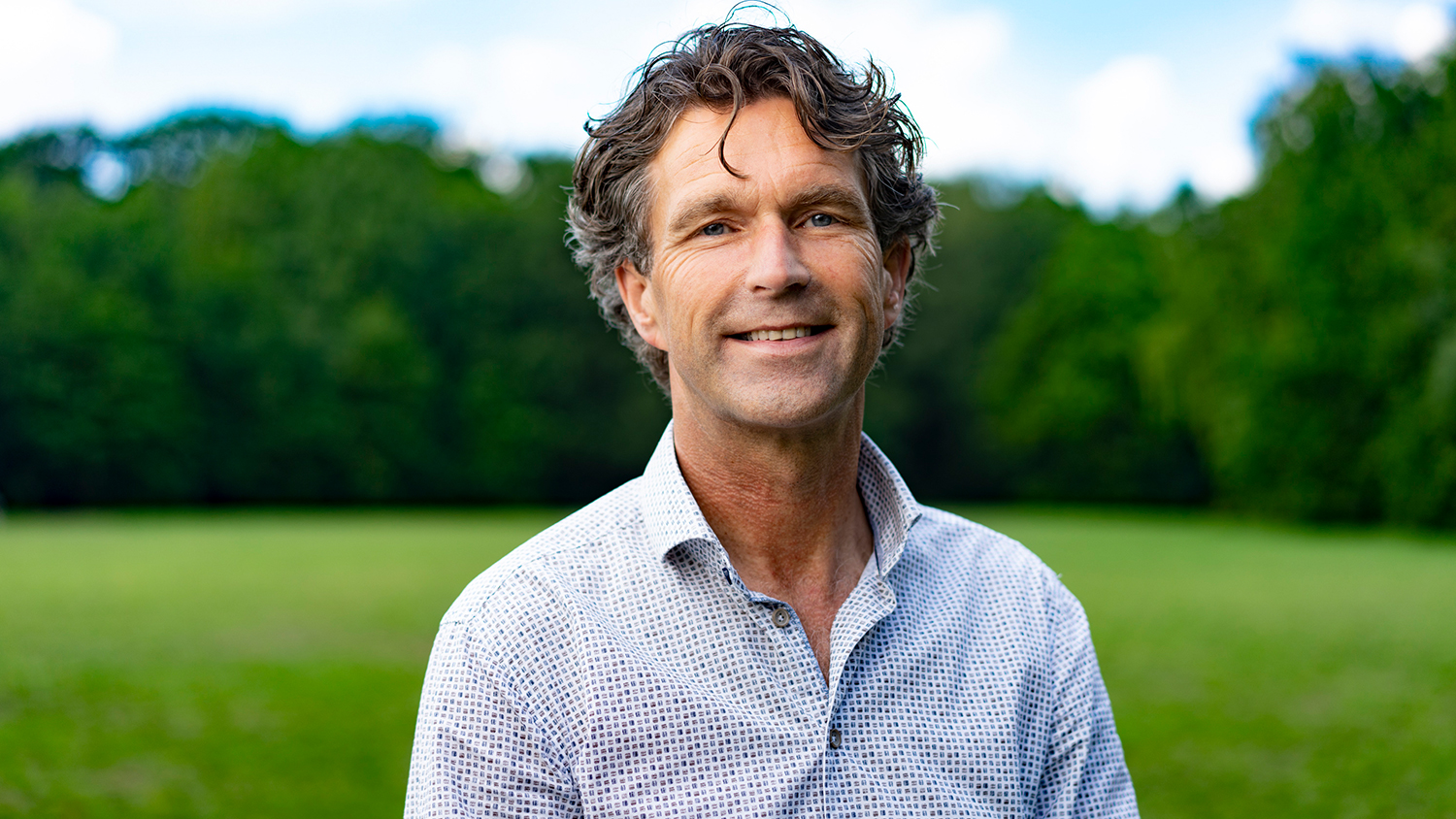The corona bigwigs, one year later: ‘We’re in a catch-up race now’

Learning to live with Covid-19
The four scientists are unanimous: Covid-19 is here to stay. Berend Jan Bosch has become the world’s most-cited virologist specialised in the coronavirus. “How, and in what shape, the virus will stick around – that’s something we’ll see eventually. Or whether it’ll cause as much disease as it does now. We don’t know yet whether the immunity provided by vaccines and natural infections will last a long time”.
“There’s no crystal ball to gaze into”, says vaccinologist Cécile van Els. “The virus had a 1-0 lead, perhaps even a 10-0 lead. Through draconic, medieval measures and physical barriers, we’ve managed to keep the virus somewhat in check, and reduced it to the waves we’ve been experiencing. I’m rather hopeful that we'll be able to slow the virus down with the first generation of vaccines, and contain it. But we need to become smarter, and in the future, we need to be able to anticipate new variants.”
Epidemiologist Patricia Bruijning thinks corona will become like the flu. “A seasonal coronavirus. We’ll have to vaccinate certain groups regularly. For younger groups, perhaps natural immunity will suffice. If you’ve been exposed to coronaviruses since you were a baby, for instance. It’ll probably be a combination of vaccinating certain groups and natural boosts from exposure to the virus.”

Patricia Bruijning. Photo: UMCU
Vaccinations and mutations
The Brazilian, South-African and British variants have already arrived in the Netherlands, and the Indian variant has recently been found as well. Will the current vaccines work against these mutations?
Cécile van Els, professor of Vaccinology at the Faculty of Veterinary Medicine and immunologist with the National Institute for Public Health and the Environment (RIVM in the Dutch acronym): “It depends on the virus’ dossier. Whether or not the virus has more rabbits to pull out of its hat, so to speak. What it’s being done now is pulling the same trick on several continents. We’re seeing that the changes caused by the mutations happen independently from each other in different people. Apparently, that makes sense to this virus. It can mutate on multiple points without losing its ‘coronavirus characteristics’. But, at some point, there will be a limit to what it can do. I expect this virus will eventually be done with the easy variations, which will slow down its mutations. In the meantime, we can make as many people as possible immune, which means the number of virus particles in the population will be smaller and, consequently, there will be fewer mutations. We’re in a catch-up race.”

Cécile van Els. Photo: Ivar Pel
But there are some variants against which the vaccines don’t protect just as well, notes Patricia Bruijning, senior lecturer, paediatrician and epidemiologist at UMC Utrecht: “Then the question becomes 'what type of infection will follow?' Will you still get deadly sick, or is it just going to be a mild infection? Data shows the latter happens most of the time: when it comes to variants, the vaccine doesn’t work perfectly but it still protects against severe disease. In the coming months, we’ll see whether that holds up as these variants – like the South-African and Brazilian ones – circulate more in our country.”
Van Els agrees. “The vaccines still have a great effect on the variants. Perhaps it’s not 90, 95 percent effectiveness, but a little lower. Protection happens in two ways: the first one is by creating antibodies, and the second one is through T-cells. The antibodies might not work as well on the variants when we test it in vitro in the laboratory but, in practice, we’re seeing that some degree of protection does exist. T-cells seem to be less sensitive with certain mutations, and there are plenty of antibodies. That leaves some room for loss in antibody effectiveness.”
Het world-famous antibody
Vaccines aren’t the only way to protect someone against Covid-19. Last summer, Berend Jan Bosch, senior lecturer and corona virologist at the Faculty of Veterinary Medicine, made headlines across the world thanks to the antibody he and his team had developed against Sars viruses, which also works on corona. What’s happened since then?
Berend Jan Bosch. Photo: Bas Niemans, UU
“The pharmaceutical company AbbVie thought it was promising, so it started developing our antibody. They are looking to offer a treatment for Covid-19, which is great”, Bosch celebrates. The antibody is currently in test phase 1. “The results of antibody therapies that had already been developed look promising. If antibodies are administered to patients shortly after the infection, they can reduce hospitalisations up to 85 percent. They can also be used in people who weren’t vaccinated or who react badly to vaccines. I think antibodies can fulfil a lasting role in health care, even as more and more people are vaccinated.”
What about antibodies? Will they respond to mutations of the virus? “That’s a good question. A single mutation can be enough to render an antibody ineffective. For some of the antibodies that have been used against Covid-19, that’s already the case. But our antibody is more sustainable in that regard. To use technical terms: it binds to a less variable part of the virus' protein.
Animals with Covid-19
It’s not just people who get Covid: animals also play an important part in the maintenance of the virus. Rabbits, mice, dogs, cats, ferrets, and countless other animals can get Covid-19. Due to Covid infections, all mink at Dutch mink farms were culled last year. What does Arjan Stegeman, professor of Livestock Health Care at the Faculty of Veterinary Medicine and vice chair of the Outbreak Management Team for Zoonotic Disease, think of this?

Arjan Stegeman. Photo: Ivar Pel
“I welcome the fact that mink will not return to the Netherlands as they are wild animals stuck in cages. That’s not acceptable, even without the diseases they carry,” states Stegeman. But when it comes to zoonotic diseases – viruses that can jump from animals to humans – one should also beware of pigs, according to the professor. “Pigs are very sensitive to human flu viruses. And because the pig farms are so huge, the viruses will keep circulating. It’s a system of infections that maintains itself. It’s also a possible source of new viruses".
“There are many factors showing that livestock farming has surpassed the boundaries of what we can handle, including the environment, nitrogen, and infectious diseases such as avian flu. We’re the most densely populated country in Europe in terms of animals. But changing Dutch livestock farming will only slightly reduce the odds of a pandemic happening.”
Southeast Asia in particular can be a cradle for viruses, warns Stegeman. “The live animal markets there are a business worth millions – 75 million euros in China alone. There are also cultural traditions at play. Closing these markets, which is the intention now, will be a long-term project.”
Science has changed for good
It’s not just the way we handle animals that’s changed. Science itself has been transformed in ways that won’t be changed back anytime soon.
Covid virologist Bosch: “I suddenly have thousands of new colleagues. Before the pandemic, there was only a small group of virologists studying coronaviruses. People are talking about the ‘covidisation of science’. The pandemic has brought about more competition, too.”
More than anything, vaccinologist Van Els is pleasantly surprised at how fast science has moved forward. “We've managed to conduct studies efficiently, using existing technology, in an unimaginably short time. It couldn’t have gone any faster in terms of development.”
Epidemiologist emphasises how much Utrecht has contributed to the fight against the virus. “It’s truly impressive that Utrecht University was able to contribute so much amidst a global health crisis. I’m proud to be a part of that.”
Paying attention to students' mental health
Another important matter is young people's social lives. Currently, one in three students struggles with mental health issues and children are delayed in their studies. Do you think people are paying attention enough to these issues?
“The capacity of our hospitals and health care system has definitely determined how strict the measures are”, Van Els ponders. “I find the fuss about the FieldLabs experiments interesting: people are discussing whether or not the government should spend so much money on these test events. That's a typical example of attention being paid to those side effects, and it gives people hope that the authorities care about mental health. People are rather done with authorities repeating over and over how horrible things are. Of course we’ll still be careful. But we have to open up, and we have to do it now.”
Bruijning thinks the discussion about mental side effects will continue for a long time. “Whether or not we’ll still be plagued by the mental health effects caused by the pandemic in five years’ time, I can’t say. Young people depend more on social contacts outside one’s own home, and that’s exactly what we can’t do right now, so this affects them a lot more than it does someone like me. But I don’t think there was anything else we could have done. So many more people would have died without a lockdown.”
Bosch recognises the lack of motivation for remote studying in his own kids, every day. “When they heard they could return to school, they celebrated and cheered. That was very different in my day.”
The near future
What do the four scientists think the near future has in store?
Arjan Stegeman hopes that everyone in the Netherlands will be vaccinated by the summer, but he doubts that animals will be vaccinated too. “They’re vaccinating animals in Russia and Finland will soon start doing it. But I don’t think pets will play a large role in this pandemic.”
Berend Jan Bosch is worried about the non-western countries that don’t have as many vaccines. “It’s both ethical and for our own benefit to ensure there are more vaccines available in those countries. Otherwise, the virus will have too much room to mutate. Covid-19 is a global issue that requires a global approach.”
Bosch and Van Els both say that a close eye should be kept on infectious diseases. Bosch: “We need vaccines and antiviral medicine to be available so we can treat a wide variety of viruses. We need policies to ensure that now.” Van Els adds: “The entire world is in peril because of a simple virus. Let’s not underestimate the chances of that happening again. We need to learn from this experience and implement long-term policies to prevent a new pandemic.”
Patricia Bruijning expects to see the effect of vaccines more and more. “I trust that we’ll be able to go to restaurants again this summer. One thing I would have liked to see is more possibilities for higher education institutions. Everything’s taking so long. A lot more could have been done with regards to education on location, by taking the right precautions".
Cécile van Els is professor of Vaccinology at the Faculty of Veterinary Medicine, and immunologist with the RIVM. In her interview with DUB last year, she called people to ‘vaccinate against coronavirus in solidarity, not just for ourselves’
Patricia Bruijning is senior lecturer, paediatrician, and epidemiologist at UMC Utrecht. ‘We’ll need to learn how to live with the virus before the new peak comes’, she told DUB in 2020.
Arjan Stegeman is professor of Livestock Health Care at the Faculty of Veterinary Medicine and vice chair of the Outbreak Management Team for Zoonotic Disease. 'Animals can become a corona reservoir', he explained.
Berend Jan Bosch is senior lecturer and coronavirus virologist at the Faculty of Veterinary Medicine. In his interview with DUB in 2020, he stated: ‘Antibodies have the potential of fighting infectious diseases’